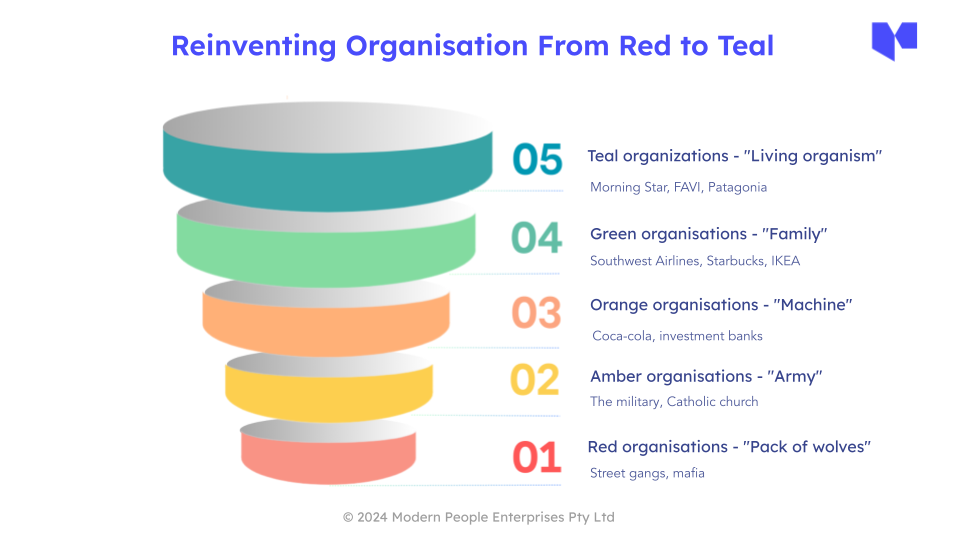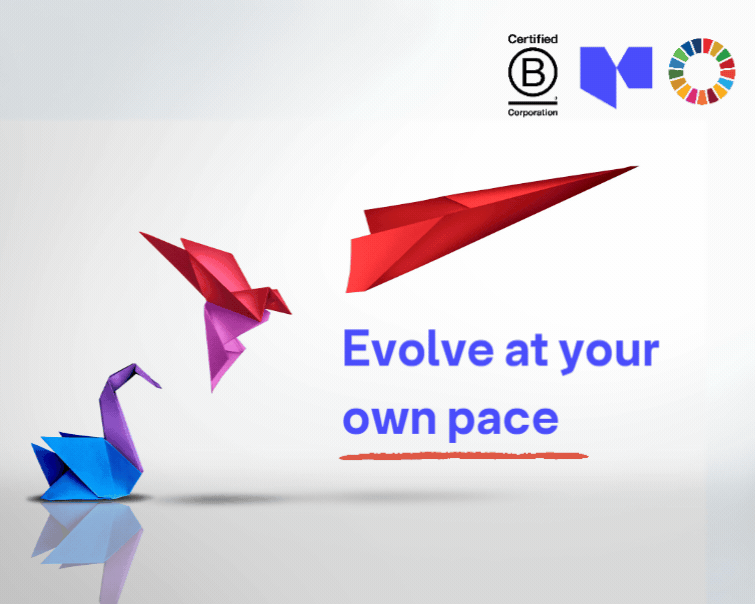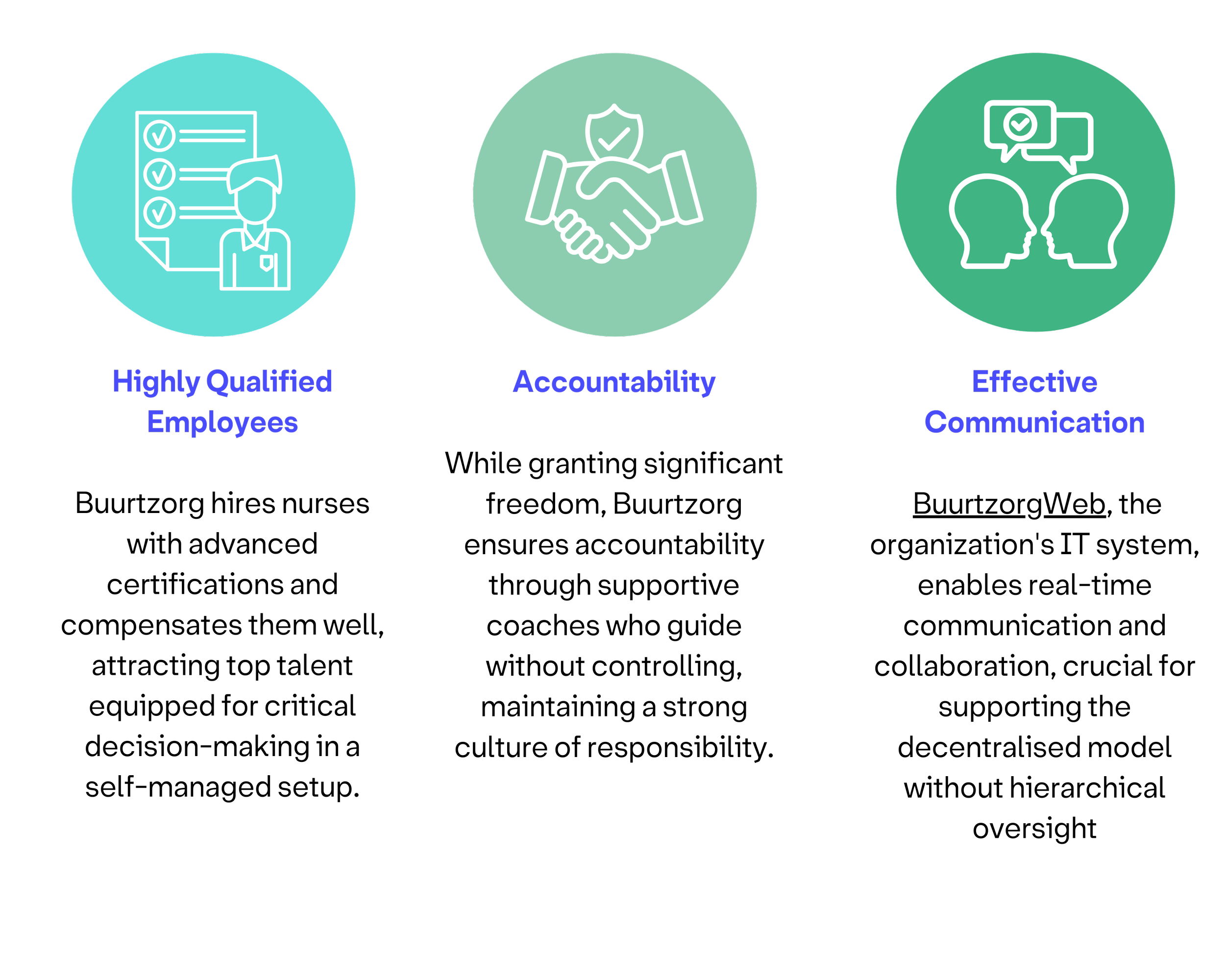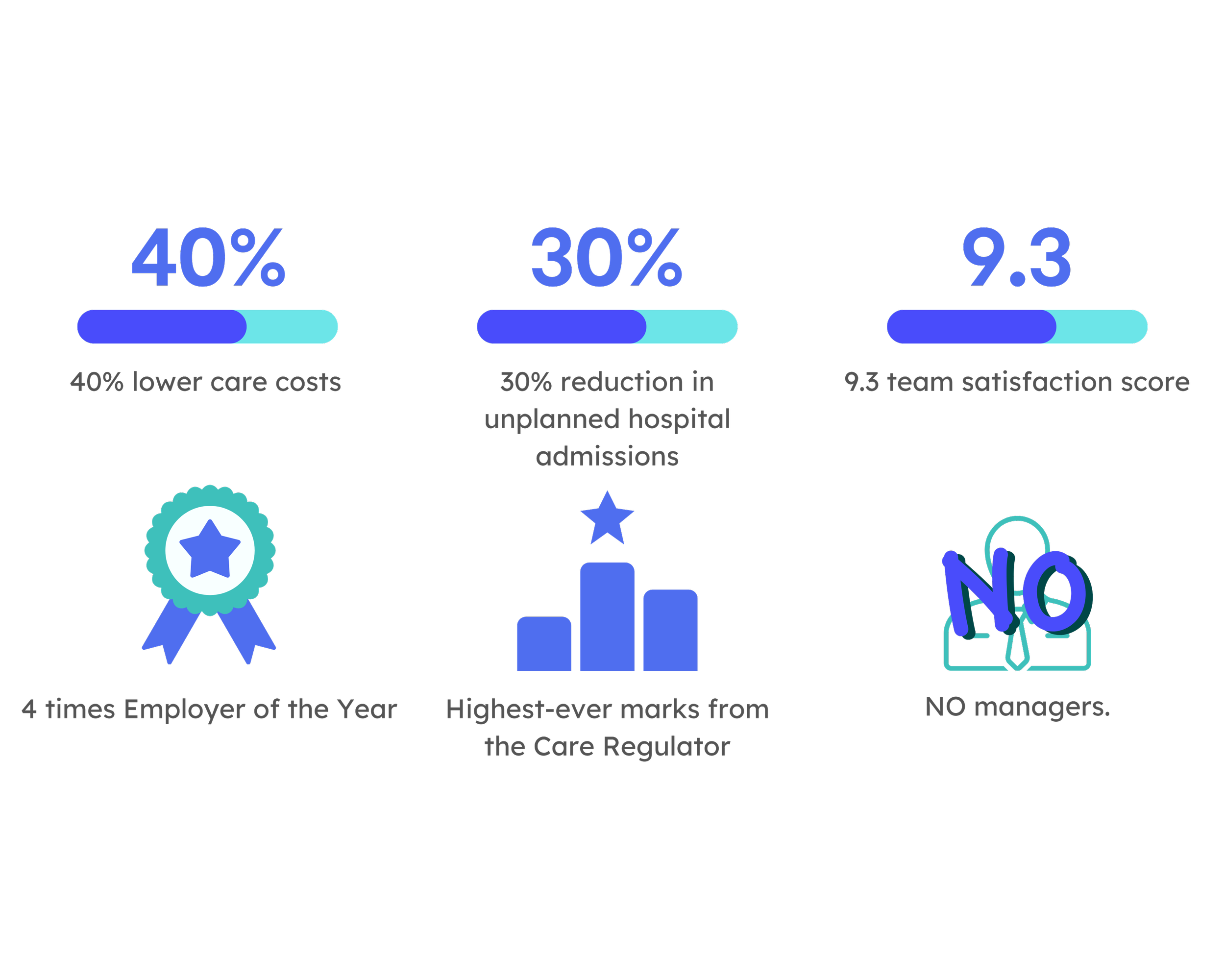Leading in moments of life + death
Leading in moments of life + death
Is it possible to truly empower employees to make their own decisions—even when those decisions could have serious consequences? The answer, as Buurtzorg has demonstrated, is a resounding yes.
40% lower care costs, highest patient satisfaction ratings, 4 times Employer of the year and highest-ever marks from the Care Regulator. And NO managers.
At Buurtzorg, nurse teams are self-managed, meaning they make independent decisions about patient care, from where to buy medical supplies to how to handle complex patient needs. With no middle managers, these nurses have the autonomy to act quickly and decisively, fostering a workplace culture described as "almost euphoric."
The impact of this model is profound. Buurtzorg’s employees are highly motivated and engaged, taking full ownership of their work. This empowerment has led to significant improvements in morale and productivity, with absenteeism, turnover, and overhead costs all substantially lower than in traditional healthcare settings.
Buurtzorg's approach has resulted in a remarkable 30% reduction in unplanned hospital admissions, demonstrating how empowering employees can lead to better patient outcomes. Additionally, 98% of Buurtzorg's clients recommend their services, showcasing the trust and satisfaction they inspire in those they care for.
Moreover, with a team satisfaction rate of 9.3 out of 10, Buurtzorg not only excels in patient care but also sets a benchmark for employee well-being and job satisfaction. The model proves that when employees are trusted and given the freedom to operate, the results can exceed even the most ambitious expectations.

How Buurtzorg embodies Teal principles
Buurtzorg is a prime example of how organisations can embrace the principles of a Teal organisation—self-management, wholeness, and evolutionary purpose—while tailoring them to their unique context.
Jos de Blok, one of Buurtzorg’s founders, envisioned a healthcare system that empowered its employees to focus on what truly matters: patient care. After witnessing how traditional healthcare models stifled innovation through excessive management layers, de Blok set out to create a new model based on self-managed teams.
Self-management in action
Buurtzorg operates with small, neighborhood-based teams of no more than 12 nurses. These teams manage themselves, deciding which patients to accept, how to run their offices, and how to solve problems as they arise. If a team grows larger than 12, it splits into two; if it falls below six, it merges with another. This structure allows for flexibility, responsiveness, and a close connection to the community.
The organisation’s trust in its nurses to make decisions in the best interest of their patients is a hallmark of the Teal paradigm. Buurtzorg’s model shows that when employees are given autonomy and the freedom to innovate, it not only boosts morale but also leads to better patient outcomes. The nurses know they are supported, and their creative, patient-focused solutions are embraced rather than questioned.

Evolve at your own pace
Every organisation is on its own journey, and there’s no one-size-fits-all path. Buurtzorg reminds us that evolution is possible, no matter where you begin. Whether you're in Red, Amber, Orange, or Green, there's always room to grow and align with what truly matters to you.
The future of work is about finding what resonates with your organisation and making meaningful changes that lead to a more empowered, engaged, and effective workplace.
Your evolution is uniquely yours, and it starts with the next step you choose to take.

What makes Buurtzorg's Teal model work?
Buurtzorg’s success isn’t just about eliminating management layers; it’s about creating a structure that supports autonomy while maintaining accountability. This aligns with the core principles of Teal organisations, where power is distributed and decision-making is decentralised.

“We know that workplace disengagement is a big problem these days. We also know from research that when employees feel empowered, they report being more motivated at work.”

